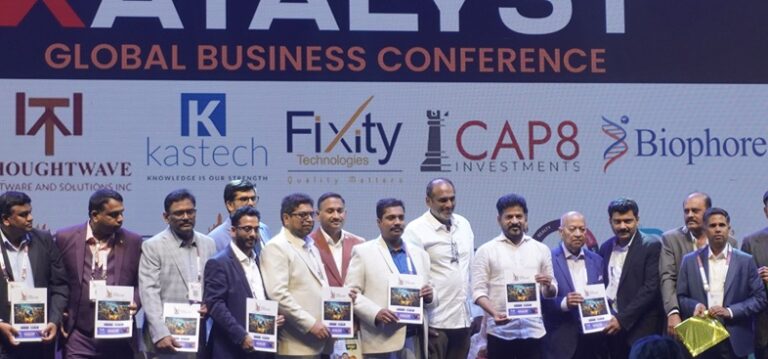July 22, 2024 – Finance Minister Nirmala Sitharaman is set to present the Union Budget 2024 on Tuesday, July 23, 2024. This budget, the first for the newly elected government, comes at a crucial time when India continues to hold its long-term growth promise amidst global uncertainties. Key economic indicators, such as a fiscal deficit target of 5.1% of GDP for FY25 and a robust macroeconomic scenario, position India as one of the fastest-growing large economies.
Key Highlights to Watch For:
Tax Reforms: Taxpayers are eagerly awaiting significant tax reliefs. Expectations are high for a hike in the standard deduction limit and tweaks to the income tax slabs to ease the financial burden on the middle class.
Economic Projections: The budget will likely reaffirm the fiscal deficit target of 5.1% of GDP for FY25, aiming to achieve 4.5% of GDP in FY26.
Current Account Deficit: With crude prices remaining range-bound, the current account deficit is expected to remain around 1% of GDP. Robust services exports might even turn the deficit positive in some quarters.
Inflation Management: While core inflation has come down, food inflation remains elevated. The budget is expected to address measures to control food inflation, with a focus on the impact of climate change on crop yields and input costs for farmers.
Infrastructure and Investment: Anticipate significant announcements in infrastructure development and investment to bolster economic growth and create job opportunities.
Social Welfare and Agricultural Support: Measures to support the agricultural sector and social welfare programs will likely be highlighted, especially considering the uneven weather patterns affecting crop yields.
Finance Minister Sitharaman’s presentation tomorrow will be closely watched for how it balances growth aspirations with fiscal prudence, aiming to sustain India’s economic momentum in a globally uncertain environment.
Rajarshi Bhattacharyya, Co-Founder, Chairman and Managing Director, ProcessIT Global:
“Cybersecurity is one of the biggest risks we face today, and it is crucial to encourage and incentivize both private and public enterprises to invest more in cybersecurity technologies. To achieve this, we need the government to support cybersecurity service providers with accessible loans and tax incentives which will boost overall investment in this critical domain. Additionally, startups and SMEs require assistance in implementing cybersecurity measures and solutions. Government agencies should prioritize investing in digital infrastructure development, focusing on high-speed internet and 5G networks to ensure a secure and resilient digital future. These measures should be a key focus in the upcoming union budget.”
Chetan Jain, Founding Executive Director, and Managing Director, Inspira Enterprise
“As we approach the Union Budget announcement, it is imperative that we focus on fortifying India’s digital infrastructure across critical sectors with increased budgetary allocations, prioritizing cutting-edge technologies and robust infrastructure development. In alignment with the Digital Personal Data Protection Act (DPDPA), this budget should promote the design and implementation of comprehensive cybersecurity programs, reinforcing the legal framework for data privacy. Furthermore, tax incentives for organizations investing in cybersecurity are crucial to strengthening our defense mechanisms. Additionally, significant support is needed to cultivate cybersecurity talent through targeted skill development initiatives. The budget should also enable further impetus with policies that support innovation in Generative AI (GenAI), particularly in transforming the cybersecurity landscape”
Mr. Manikanth Challa, Founder & CEO, Workruit
As the Union Budget 2024 approaches, the recruitment and startup ecosystem eagerly anticipates further advancements in technology and innovation. In recent years, the integration of AI and machine learning has revolutionized the hiring process, making it more efficient, inclusive, and accessible. Our expectations from this budget are centered on continued support for digital infrastructure and technology-driven solutions that can streamline recruitment and foster entrepreneurial growth.
Reflecting on last year’s budget, which laid a solid foundation for digital transformation by allocating funds for AI research and promoting startup ecosystems, we hope this year’s budget will build upon those initiatives. Specifically, we are looking for increased investment in AI research and development, enhancing talent acquisition, and matching candidates with the right opportunities more accurately.
However, it is evident that many colleges and educational institutions are still lacking in technology, infrastructure, and resources. For instance, several institutions struggle with outdated computer labs, limited access to high-speed internet, and insufficient training programs for both students and faculty. These gaps hinder the ability of institutions to adequately prepare students for a tech-driven job market. Last year’s budget did not allocate sufficient funds to address these critical areas, leaving a significant portion of our educational infrastructure under-equipped for the future.
We believe that the upcoming budget should prioritize substantial investments in educational technology and infrastructure. This includes upgrading computer labs, ensuring widespread access to high-speed internet, and providing robust training programs for digital skills. By doing so, we can better prepare our future workforce to meet the demands of a rapidly evolving job market.
Harry Bajaj, Founder and CEO, Mobec
“As we approach the upcoming Union Budget, India’s electric vehicle (EV) sector stands at a pivotal juncture. The sector has grown remarkably over the last year thanks to 100% FDI, new manufacturing hubs, improved charging infrastructure, and advantageous laws and incentives. The government’s proactive stance, particularly through the production-linked incentive (PLI) scheme, has significantly boosted the manufacturing of EVs, components, and batteries.
According to a study by the Centre for Energy Finance (CEEW-CEF), the Indian EV market is poised to become a $206 billion opportunity by 2030. This highlights the importance of continued government support to ensure sustainable and rapid growth. The FAME II scheme was instrumental in setting the foundation for EV adoption in India. With its conclusion in March 2024, the interim EMPS scheme’s reduced subsidies have posed challenges for the industry. As a result, we are looking forward to the introduction of FAME III, which will provide subsidies comparable to FAME II, to revitalise the industry and develop charging infrastructure nationally.
Furthermore, the future budget should prioritize incentivizing firms to use EVs for last-mile delivery operations. Developing robust manufacturing capacity to fulfil expanding demand is equally important. Although progressing, India’s EV ecosystem is still in its early phases and requires a competent workforce for production and after-sales services. Large-scale upskilling and reskilling programs are required to provide the workforce with the skills needed for this changing business. We expect that the budget will include considerable funding for these programs, allowing India to continue to lead in the global transition to clean mobility. The government can help unleash the full potential of the EV industry by supporting innovation and infrastructure development, which drive economic growth and environmental sustainability.
Sustainability must remain at the heart of this growth. By championing EV adoption and bolstering the necessary infrastructure, we not only reduce our carbon footprint but also set the stage for a greener, more sustainable future. The upcoming budget is a critical opportunity to solidify India’s position as a leader in the global transition to clean mobility.”
Prasun Sikdar, MD & CEO, ManipalCigna Health Insurance
“Right to Health is a part and parcel of Right to Life under Indian Constitution. The government has two primary objectives (a) ensure wider access to healthcare services at affordable prices and adequate quality (b) Reduce the out-of- pocket expenditure. Keeping this in mind, the National Health Policy has proposed an increase in public expenditure to 2.5% of GDP by 2025. Despite some progress over the years, India’s healthcare spending is still low compared to the global average, necessitating a substantial boost in healthcare spends. Thus, in the upcoming union budget, we expect the Finance Minister to announce higher allocation of funds for healthcare compared to what was proposed in interim budget to meet the targets of the National Health Policy.
Addressing the second objective, reducing out-of-pocket expenses, is equally critical. Currently, these expenses are still high relative to global standards, indicating a considerable protection gap. Private health insurance is vital in bridging this gap. The insurance regulator, IRDAI has also set a vision of achieving Insurance for All by 2047, marking a century of India’s independence. Thus, our sincere submission to government is to reduce the current 18% GST rate on essential service like Health Insurance. Further, specific segment considerations are also required especially for middle-income and senior citizen segments who are struggling to meet the rising healthcare costs. Lowering the GST burden on the health insurance premiums will be a huge respite for missing middle and senior citizens to get access to quality healthcare they need and help to significantly boost insurance penetration across India by driving affordability.”
Mr. Tarun Chugh, MD & CEO, Bajaj Allianz Life Insurance
Over the past decade, India has achieved remarkable economic growth, with GDP consistently exceeding 6% and surpassing many global economies. As we approach this budget, we anticipate measures that will sustain and simultaneously accelerate this long-term growth, benefiting individuals and businesses alike, with a strong emphasis on job creation. Addressing inflation is crucial for securing a robust financial future for individuals, as it will enable them to have more money in hand, towards savings and investments for their long-term goals and financial security.
With increased earning power and disposable income, Indian citizens will be able to invest in versatile life insurance products for their peace of mind and financial goals. Given the under penetration of life insurance in the country, there is substantial room for sectoral growth.
As an industry, some of our budget expectations from the finance ministry is to consider lower GST on life insurance products. Additionally, in the pension products category, with the objective of securing post-retirement financial needs of the individuals, we urge the government to align life insurance annuity or pension products with the National Pension Scheme (NPS) and allow the similar additional deduction of Rs. 50,000 or more for life insurance annuity or pension products under Income Tax.
We also request the ministry to introduce Long Term Capital Gain taxability for all high value traditional life insurance plans (more than Rs.5 lakhs aggregate annual premium), in line with high value ULIPs. This will bring in uniformity and tax efficiency for insurance customers at par with other similar financial products in the market.
Mr. Praveen Jaipuriar, CEO of Continental Coffee Limited
“In the forthcoming Union Budget 2024, we expect initiatives that will promote sustainable and inclusive growth while tackling inflation in the country. According to a consumer industry analysis report, India is one of the largest retail markets in the world, expected to grow to US$1.41 trillion by 2026. Despite the growing purchasing power in the country, there remains a significant disparity between urban and rural consumption patterns. To address this difference in the FMCG sector, the Government can work towards improving infrastructure, promoting employment generation, and increasing financial inclusion. These efforts will help revitalize the economy.
The FMCG sector anticipates the rationalization of GST. Lowering GST on products like packaged foods would not only make goods more affordable but also boost consumption, leading to higher sales volumes. Additionally, the coffee manufacturing Industry expects the government to help boost consumption by adopting measures like lowering the GST on Instant Coffee, decreasing the import duty on green beans, and last but not least, adopting measures to increase green bean acreage and throughput. These strategies will help to produce more coffee beans, both in quantity and quality, to meet market demand and potentially improve the sustainability and profitability of coffee production,”
Devyani Jaipuria Pro-Vice Chairperson of Delhi Public School
Given the current economic climate and the pressing need for educational reform, we eagerly anticipate the upcoming budget to prioritize substantial increases in funding for education. We urge the government to aim for a significant allocation boost, especially for higher education institutions. Enhancing infrastructure, bolstering research capabilities, and ensuring overall educational quality are pivotal for our nation’s growth trajectory. We hope to see a commitment towards achieving the optimal allocation of 6% of GDP to education, paving the way for transformative reforms and the establishment of new educational institutions, particularly in the K-12 segment.”
Ajay Singh – School Principal – The Scindia School
“Education goes beyond imparting knowledge; it’s about equipping students with the skills needed to excel in an ever-changing world. As we approach the Budget 2024 announcement, we have high hopes for increased funding in the education sector, particularly in areas that foster skill development and innovative learning methods.
We believe that substantial investment in digital infrastructure, vocational training, and teacher development programs will significantly enhance the quality of education. Such initiatives are critical for preparing students to meet the demands of the future job market. Moreover, we support policies that encourage partnerships between educational institutions and industries. These collaborations can provide students with hands-on experience and practical skills that are crucial for their professional success. I am optimistic that the upcoming budget will prioritize education and skill development, ensuring that the students are well-prepared to contribute meaningfully to society and the economy.”
Siddharth Chaturvedi -Director at AISECT
As we approach this year’s budget, it is crucial to prioritize investments in skill development and education. The rapidly evolving job market demands a workforce equipped with contemporary skills and practical knowledge. By allocating substantial resources to vocational training, digital literacy programs, and industry-academia partnerships, we can empower the youth and drive inclusive growth. Key areas of focus should include expanding government-sponsored programs in future skills, increasing opportunities for apprenticeships, and allocating funds for the integration of the National Education Policy (NEP) in Higher Education Institutions (HEI) and expanding vocational education in schools. Additionally, linking entrepreneurship programs with loan facilities, promoting research with government grants and reducing GST on online courses will further strengthen the educational framework.
This budget should highlight an ecosystem where education and skill training go hand in hand ensuring that students are not just degree holders but also industry-ready professionals.
NS Satish, President, Haier Appliances India.
“As the Union Budget approaches, the consumer durables industry is optimistic about increased infrastructure spending and the extension of PLI schemes to boost economic growth. The durables segment is currently under-penetrated, presenting a significant opportunity for demand generation. The industry is also hopeful that the government’s emphasis on ‘Make in India’ and ‘Digital India’ initiatives will align with the growing consumer preference for locally manufactured products. Such focus will not only enhance global competitiveness for Indian players but also significantly boost employment.
At Haier India, we look forward to a budget that creates a stable and growth-oriented environment, facilitating ease of doing business and driving economic activity and demand generation. These measures will provide the much-needed impetus for sustained growth in the consumer durables sector.”




+ There are no comments
Add yours